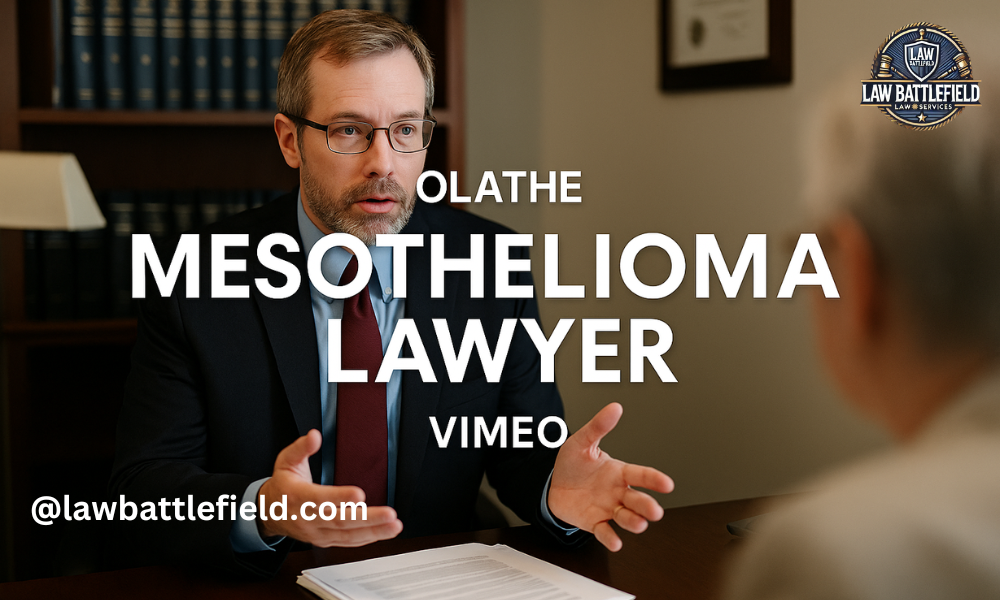Introduction
The phrase “create an image of a lawyer chasing an ambulance” is a well-known metaphor. It refers to lawyers who seek clients by taking advantage of accidents or personal tragedies. This image is often used to criticize unethical behavior in the legal field.
This article will explore the meaning behind this phrase, its history, and its impact. We’ll also look at how this practice affects the reputation of lawyers. By the end, you’ll understand why this stereotype exists and how ethical lawyers work to avoid it.
We’ll break down the topic into simple sections. These include the history of the term, ethical issues, and solutions for combating the stereotype. Our goal is to give you a clear picture of what “ambulance chasing” means in the legal world. This article is designed to be informative and easy to read.
Historical Context Of “Ambulance Chasing”
Origins Of The Term
The term “ambulance chasing” comes from the idea of lawyers literally chasing ambulances to find potential clients. In its early usage, it referred to lawyers who would appear at accident scenes or hospitals to persuade victims to hire them. This image paints a picture of desperation and unethical behavior, often linked to greed.
The phrase became popular in the early 20th century when personal injury law started gaining attention. Back then, lawyers who engaged in this practice were often seen as exploiting vulnerable people. The term was coined to highlight the aggressive and sometimes unethical tactics used by certain lawyers.
Evolution Over Time
Over the decades, the perception of ambulance chasing has shifted. Initially, it was a direct reference to physical actions—lawyers showing up at accident scenes. Later, it evolved into a metaphor for any form of unethical solicitation, including phone calls, letters, or online marketing targeted at accident victims.
Laws and regulations have also changed the landscape. Many states introduced strict rules to prevent direct solicitation of clients after an accident. Despite this, the stereotype persists, often fueled by media portrayals and public opinion.
Today, “ambulance chasing” is more symbolic of unethical legal practices rather than literal behavior. The legal profession continues to fight against this image, promoting ethics and professionalism to maintain public trust.
Ethical Implications In The Legal Profession
American Bar Association (ABA) Guidelines
The American Bar Association (ABA) has strict guidelines to maintain ethical behavior among lawyers. One key rule is against direct solicitation of clients in vulnerable situations. According to the ABA’s Model Rules of Professional Conduct, lawyers cannot contact accident victims or their families for personal gain. This rule aims to prevent exploitation and ensure fairness in legal representation.
The ABA also emphasizes professionalism. Lawyers must respect clients’ dignity and avoid behavior that could harm the public’s trust in the legal system. These guidelines set a high standard, separating ethical lawyers from those engaging in questionable practices like ambulance chasing.
Legal Consequences
Engaging in ambulance chasing can lead to serious legal consequences. Lawyers caught soliciting clients unethically may face fines, suspension, or even disbarment. State laws often impose penalties to discourage these practices. For example, some states have a waiting period before lawyers can contact accident victims. Violating these rules can damage a lawyer’s career and reputation.
In extreme cases, unethical behavior can lead to criminal charges. This happens when lawyers use intermediaries, known as “runners,” to bypass solicitation laws. Courts take such violations seriously to protect the integrity of the legal profession.
Impact On Public Trust
Ambulance chasing harms the public’s view of lawyers. It reinforces the stereotype that lawyers care more about profit than justice. This damages the reputation of the legal profession as a whole, making it harder for ethical lawyers to earn trust.
When people see lawyers as opportunistic, they may hesitate to seek legal help, even when they need it. This lack of trust can undermine the justice system, as individuals may feel unsupported or misrepresented. Ethical lawyers work hard to counteract this image by following professional standards and focusing on genuine client care.
By avoiding ambulance chasing and adhering to ethical practices, lawyers help rebuild trust in the legal profession. This ensures that the public sees lawyers as advocates for justice rather than opportunists.
Media Portrayal And Stereotypes
Depictions In Popular Culture
Media and entertainment often amplify the image of ambulance-chasing lawyers. Movies, TV shows, and advertisements frequently portray lawyers as opportunistic individuals who thrive on misfortune. Characters like the sleazy personal injury attorney have become recurring figures in popular culture.
In many stories, these lawyers are shown aggressively pursuing clients, offering quick settlements, or bending ethical rules to win cases. These portrayals exaggerate real-world practices but leave a lasting impression on audiences. Famous examples from films and sitcoms make it seem like all personal injury lawyers engage in unethical behavior.
Even advertisements contribute to this stereotype. Catchy jingles or aggressive slogans from law firms specializing in accident cases sometimes blur the line between effective marketing and predatory solicitation. This further cements the “ambulance-chaser” label in the minds of the public.
Influence On Public Perception
The media plays a powerful role in shaping how society views lawyers. Negative portrayals of lawyers as ambulance chasers influence how people perceive the legal profession. Even though these representations are often exaggerated or fictional, they create a biased image that is hard to erase.
For many, their only exposure to lawyers comes through these portrayals. This leads to assumptions that all lawyers prioritize profit over ethics. People may distrust lawyers or hesitate to seek help, fearing they might be exploited.
On the other hand, some legal professionals and organizations use media to combat these stereotypes. Campaigns highlighting the importance of ethical practices and the positive impact of lawyers help balance the narrative. By addressing the issue openly, the legal profession can work to rebuild its image and educate the public about the critical role lawyers play in upholding justice.
Understanding the influence of media and actively countering stereotypes is crucial. It allows lawyers to present their profession as a force for good, focused on helping people navigate challenging legal situations.
Legal Boundaries And Regulations
State-Specific Legislation
Ambulance chasing is not only unethical but also illegal in many states. Laws have been enacted to prohibit direct solicitation of clients by lawyers in the aftermath of accidents. These laws aim to protect accident victims from undue pressure and exploitation during vulnerable moments.
For example, several states have a mandatory waiting period before lawyers can contact accident victims. This period allows individuals to recover or assess their situation without interference. In states like Texas and Florida, strict regulations govern how and when lawyers can approach potential clients.
Violating these laws can result in fines, suspension, or even disbarment. Each state’s bar association enforces these rules to maintain ethical standards. By penalizing unethical behavior, these regulations protect the public and preserve the integrity of the legal profession.
Role Of “Runners”
“Runners” are intermediaries hired by unethical lawyers to bypass solicitation laws. They act as middlemen, approaching accident victims on behalf of the lawyer. These individuals might pose as well-wishers, hospital staff, or even insurance representatives to gain the victim’s trust.
Using runners is a deceptive practice that exploits loopholes in the system. It is illegal in most states and can lead to severe consequences for both the lawyer and the runner. This practice undermines public trust and damages the reputation of the legal profession.
State bar associations and law enforcement agencies actively investigate cases involving runners. When caught, those involved face significant penalties, including criminal charges. Combating this practice is a priority to ensure that clients can trust their legal representation.
Ethical Marketing Practices For Lawyers
Building Reputation
A strong reputation is the foundation of a successful legal career. Lawyers can build their reputation by focusing on excellent client service and delivering positive results. Treating clients with respect, maintaining transparency, and providing honest advice go a long way in earning trust.
Word-of-mouth referrals remain one of the most effective marketing tools. Satisfied clients are more likely to recommend a lawyer to friends and family. Lawyers who prioritize integrity and professionalism naturally attract more clients without resorting to unethical practices like ambulance chasing.
Digital Marketing
In today’s digital age, lawyers can promote their services online while adhering to ethical guidelines. Creating a professional website, sharing educational blog posts, and using social media to provide legal insights are all effective strategies. These methods allow lawyers to reach a broader audience without targeting vulnerable individuals directly.
Search engine optimization (SEO) plays a crucial role in digital marketing. Lawyers can use relevant keywords like “personal injury lawyer” or “legal advice after an accident” to ensure their content appears in search results. This approach helps potential clients find them organically, rather than through intrusive or aggressive tactics.
Paid advertisements can also be ethical if done correctly. Clear disclaimers and non-misleading claims are essential. Lawyers should avoid overly dramatic language or promises of guaranteed outcomes, as these can violate ethical standards.
Community Engagement
Getting involved in the community is another powerful way for lawyers to market themselves ethically. Participation in local events, hosting free legal clinics, or offering pro bono services demonstrates a genuine commitment to helping people. This approach not only builds trust but also establishes a positive reputation.
Community engagement allows lawyers to connect with people in a meaningful way. It shows that they are invested in the well-being of the community, rather than just seeking profit. Over time, this involvement strengthens relationships and creates opportunities for organic client referrals.
By focusing on reputation, digital presence, and community engagement, lawyers can promote their services ethically and effectively. These practices ensure they build a client base while maintaining professionalism and public trust.
Case Studies And Real-World Examples
Notable Incidents
Over the years, several high-profile cases have shed light on ambulance chasing and its consequences. One widely discussed case involved a prominent personal injury lawyer accused of using runners to solicit accident victims. Investigations revealed that intermediaries approached individuals at hospitals and accident scenes, pressuring them to sign contracts with the lawyer.
In another case, a law firm faced legal action for violating state solicitation laws. The firm had sent targeted mailers to accident victims within hours of their incidents. The aggressive approach drew public criticism and led to disciplinary action from the state bar association.
These cases highlight how unethical practices can tarnish the reputation of individual lawyers and the legal profession as a whole. They also demonstrate the importance of enforcing rules to deter such behavior.
Lessons Learned
These incidents provide valuable lessons for legal professionals:
- Adherence to Ethics is Crucial
Lawyers must prioritize ethical practices over quick gains. Following established guidelines helps build long-term trust with clients and the community. - Public Perception Matters
Negative publicity from unethical behavior can have lasting consequences. Once a lawyer’s reputation is damaged, rebuilding trust is challenging. This underscores the importance of integrity in all client interactions. - Legal Consequences are Serious
Violating solicitation laws can lead to severe penalties, including fines, suspension, or disbarment. These cases remind lawyers of the risks involved in crossing ethical boundaries. - Positive Practices Build Credibility
Instead of resorting to questionable tactics, lawyers can focus on ethical marketing and community engagement to attract clients. Upholding professional standards strengthens the legal profession as a whole.
By studying these real-world examples, lawyers can better understand the pitfalls of unethical behavior and the benefits of adhering to ethical guidelines. These lessons serve as reminders of the critical role integrity plays in legal practice.
Combating The Stereotype
Efforts By Legal Associations
Legal associations play a significant role in combating the stereotype of ambulance-chasing lawyers. Organizations like the American Bar Association (ABA) and state bar associations enforce strict ethical standards to regulate lawyer behavior. These associations actively investigate complaints, penalize misconduct, and promote professionalism.
Public campaigns are another key initiative. Legal associations often run programs to educate the public about ethical legal services. These efforts showcase the positive contributions of lawyers, helping to counteract negative perceptions fueled by media or individual bad actors.
Mentorship programs are also common, where experienced lawyers guide new attorneys on maintaining ethical practices. By emphasizing the importance of integrity early in a lawyer’s career, these programs help foster a culture of professionalism within the legal community.
Client Education
Educating clients is essential in addressing the ambulance-chasing stereotype. Many people are unaware of their rights or how to identify ethical legal representation. Lawyers and legal associations can provide resources that empower clients to make informed decisions.
For example, clients should know that reputable lawyers do not approach them immediately after an accident. Instead, ethical lawyers allow individuals time to process their situation before offering assistance. Informing clients about their rights to choose their own representation helps them avoid falling victim to unethical solicitation.
Educational materials like brochures, online guides, and workshops can teach the public how to evaluate lawyers. Encouraging people to look for credentials, reviews, and recommendations ensures they select lawyers based on merit rather than aggressive marketing tactics.
By focusing on these efforts, the legal profession can effectively combat stereotypes and rebuild trust. Educating both lawyers and the public fosters a better understanding of ethical practices, benefiting everyone involved in the legal process.
Conclusion
Recap Of Key Points
The phrase “create an image of a lawyer chasing an ambulance” has long symbolized unethical practices in the legal field. Through this article, we explored the historical context of ambulance chasing, its evolution, and the negative stereotypes it creates. We examined how the media perpetuates these images, the ethical standards set by organizations like the ABA, and the legal consequences for those who violate solicitation laws.
We also highlighted the importance of ethical marketing practices and community engagement as alternatives to unethical client solicitation. Case studies provided real-world examples of the consequences of ambulance chasing, offering valuable lessons for legal professionals. Finally, we discussed how legal associations and client education efforts can help combat this stereotype and rebuild trust.
Final Thoughts
Maintaining ethics is essential for preserving the integrity of the legal profession. Lawyers have a responsibility to uphold standards that reflect the true purpose of their work: advocating for justice and helping clients navigate complex legal challenges. By adhering to ethical guidelines, avoiding exploitative practices, and focusing on professionalism, lawyers can change public perception and build stronger relationships with their communities.
The legal profession thrives on trust, and ethical behavior is the foundation of that trust. Addressing the stereotype of ambulance chasing and promoting ethical practices benefits not only lawyers but also the clients and communities they serve. Through transparency, integrity, and genuine advocacy, lawyers can reinforce their role as vital contributors to a fair and just society.
FAQs
What Does “Ambulance Chasing” Mean?
“Ambulance chasing” refers to unethical practices by some lawyers who seek out accident victims to solicit their legal services, often exploiting vulnerable situations.
Is Ambulance Chasing Illegal?
Yes, in many states, ambulance chasing is illegal and violates ethical standards set by organizations like the American Bar Association (ABA). Lawyers caught engaging in such practices may face fines, suspension, or disbarment.
How Can I Identify An Ethical Lawyer?
Look for lawyers with good reviews, strong credentials, and a professional reputation. Ethical lawyers never pressure or aggressively solicit clients after an accident.
Why Is Ambulance Chasing Harmful?
Ambulance chasing exploits vulnerable individuals and damages public trust in the legal profession. It reinforces negative stereotypes about lawyers being opportunistic.
How Do Legal Associations Combat Ambulance Chasing?
Legal associations enforce ethical rules, investigate misconduct, and educate both lawyers and the public about ethical practices to maintain integrity in the profession.
What Should I Do If I’m Approached By A Lawyer After An Accident?
You have the right to choose your own legal representation. Take time to research and select a lawyer based on their expertise and reputation rather than aggressive solicitation.
How Can Lawyers Promote Their Services Ethically?
Lawyers can focus on building their reputation through excellent service, using digital marketing platforms responsibly, and engaging with their communities to establish trust.
Was this article helpful? Check out more on Lawbattlefield.com
Finding Expert Criminal Attorneys In Thailand With Offices In California For Cross-Border Legal Help





